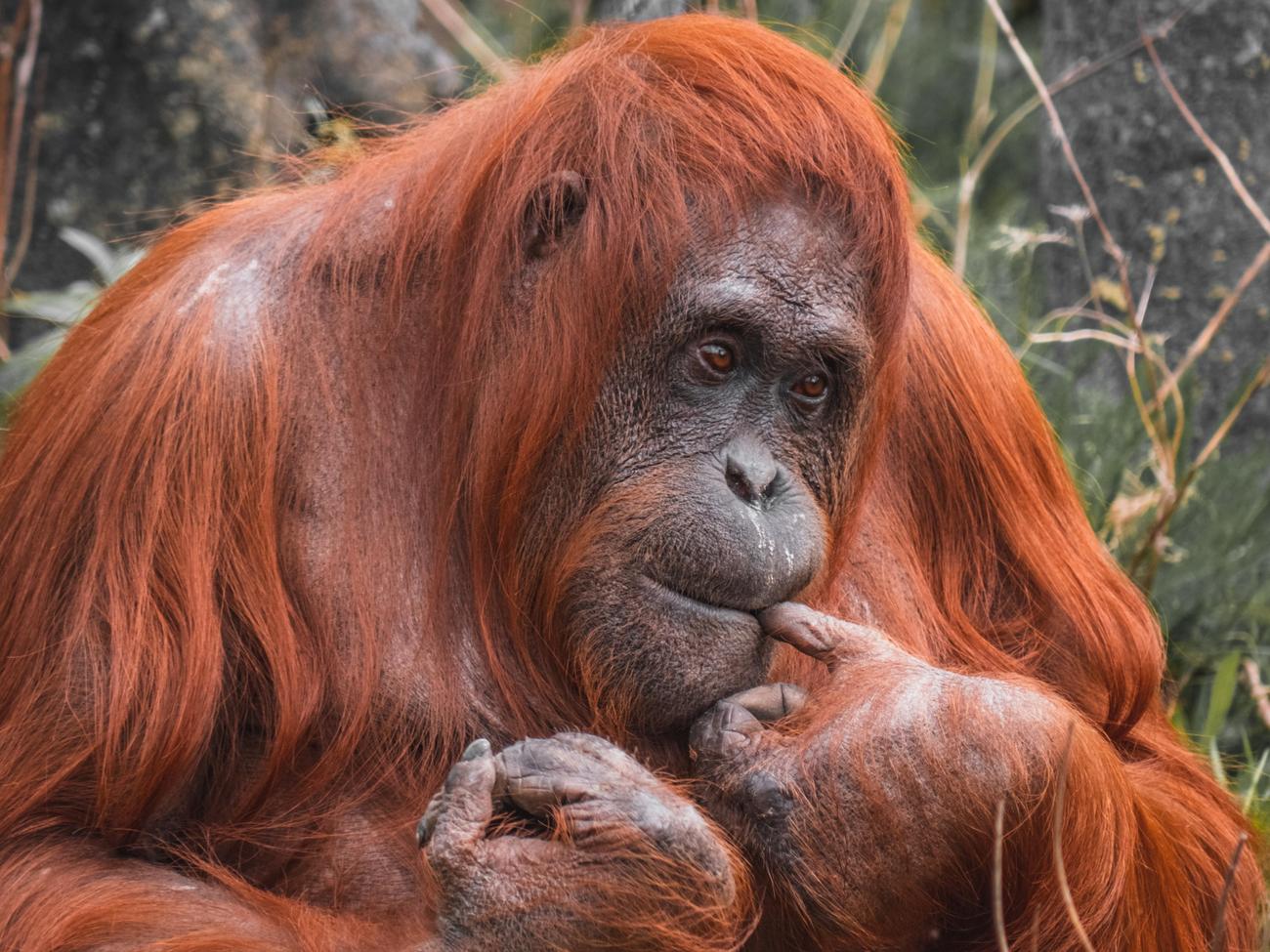Are we on the brink of losing one of our closest relatives in the animal kingdom? In the lush rainforests of Southeast Asia, the endangered orangutans are silently slipping away, their once vibrant populations dwindling at an alarming rate. As we stand at this critical crossroads, it is essential to shine a light on the plight of these magnificent creatures. In this article, we delve deep into the struggles faced by orangutans, exploring the complex factors thrusting them towards the edge of extinction. Brace yourself for an eye-opening journey into the heart of orangutan conservation, as we uncover the urgent need to protect these incredible species before it’s too late.

Endangered Status of Orangutans
Orangutans, the gentle “persons of the forest,” are facing a dire threat to their survival. As an experienced wildlife journalist, it is my duty and passion to shed light on the endangered status of orangutans and the urgent need for conservation efforts to save these incredible creatures.
Habitat Loss and Population Decline
The three species of orangutans – Bornean, Sumatran, and Tapanuli – are critically endangered due to rampant habitat loss caused by deforestation. The Bornean orangutan’s population has declined by a staggering half since 1960, pushing them from “endangered” to “critically endangered” on the IUCN’s classification. Similarly, the newly discovered Tapanuli orangutan has also been classified as critically endangered. We are witnessing a rapid decline in their numbers, and immediate action is necessary to reverse this devastating trend.
“The populations of Bornean orangutans have declined by half since 1960, leading to a change in their status from ‘endangered’ to ‘critically endangered’ by the International Union for the Conservation of Nature (IUCN).”
Habitat Destruction in North Sumatra
The lush rainforests of North Sumatra, once the thriving homes of orangutans, are being destroyed at an alarming rate. The expansion of oil palm plantations, illegal logging, and forest fires have left these forests fragmented and depleted. As a result, orangutans in this region are losing their homes and struggle to find sufficient food and shelter.
“Orangutans are losing habitat in North Sumatra due to the rapid expansion of oil palm plantations, illegal logging, and forest fires.”
Illegal Wildlife Trade and Poaching
Tragically, orangutans are not only battling habitat loss but are also victims of the illegal wildlife trade and poaching. These majestic creatures, known for their intelligence and gentle nature, are captured and sold as pets or for their body parts. This cruel trade pushes orangutans further towards the brink of extinction.
“Orangutans are also threatened by poaching and the illegal wildlife trade.”
Urgent Action for Conservation
The perilous situation faced by orangutans calls for immediate and comprehensive conservation measures. While efforts are being made, we must act swiftly and collectively to protect their habitats and secure a future for these marvelous creatures. By doing so, we can ensure that our children and future generations will continue to marvel at the presence of orangutans in the wild.
“Conservation efforts are being made to protect orangutans and their habitats, but urgent action is required to prevent their extinction.”
Conclusion
The endangered status of orangutans demands our attention and proactive engagement. Through awareness, education, and supporting conservation initiatives, we can make a significant impact in safeguarding these remarkable creatures and their habitats. Let us not wait until it’s too late, but instead take action now to secure a harmonious future for orangutans and the delicate ecosystems they call home.
Remember: [Endangered status of orangutans] is not just a concern for wildlife experts; it is a cause that calls upon all of us to unite and protect the richness and diversity of our natural world.
Orangutans are remarkable creatures that are fascinating to learn about. Did you know that they are the largest tree-dwelling animals in the world? If you’re curious to discover more cool facts about orangutans, click here: cool facts about orangutans. Get ready to be amazed by their incredible intelligence, unique adaptations, and their significant role in maintaining the balance of their rainforest habitat. Don’t miss out on this opportunity to dive deeper into the captivating world of orangutans!
FAQ
Q: Why are orangutans endangered?
A: Orangutans are endangered primarily due to habitat loss caused by deforestation. The rapid expansion of oil palm plantations, illegal logging, and forest fires in their habitats are major contributing factors. Additionally, orangutans are also threatened by poaching and the illegal wildlife trade.
Q: How many orangutan species are critically endangered?
A: Currently, all three orangutan species (Bornean, Sumatran, and Tapanuli) are classified as critically endangered. This means that they face an extremely high risk of extinction in the wild.
Q: What is the population status of orangutans?
A: According to estimates, there are approximately 104,000 Bornean orangutans, 13,000 Sumatran orangutans, and 800 Tapanuli orangutans left in the wild. The populations of Bornean orangutans have declined by half since 1960, leading to a change in their status from “endangered” to “critically endangered” by the International Union for the Conservation of Nature (IUCN).
Q: What are the threats to orangutan habitats?
A: Orangutans are losing habitat primarily due to deforestation caused by activities such as the expansion of oil palm plantations, illegal logging, and forest fires. These destructive practices result in the loss of critical forest habitats that orangutans rely on for their survival.
Q: What conservation efforts are being made to protect orangutans?
A: Conservation efforts are being made to protect orangutans and their habitats. These include initiatives such as establishing protected areas, promoting sustainable practices in the palm oil industry, raising awareness about the importance of orangutan conservation, and combating illegal wildlife trade. However, urgent action is required to prevent the extinction of these incredible creatures.












